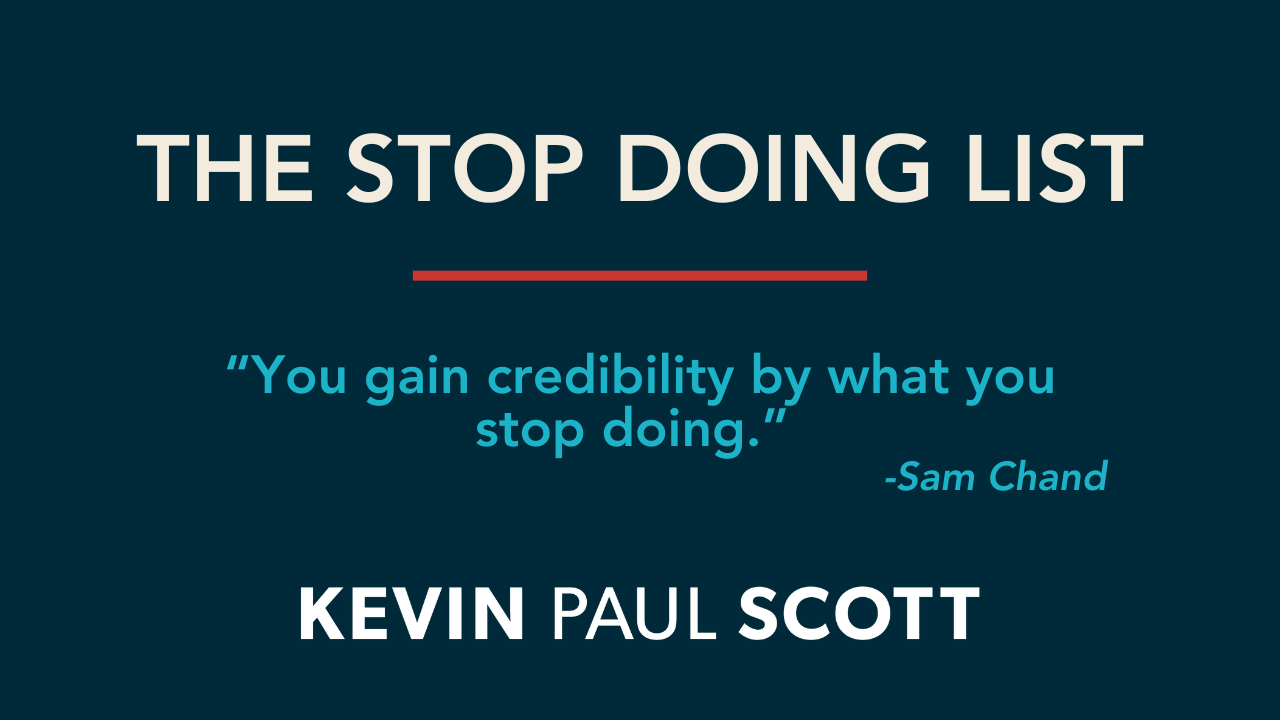Talented individuals want to know if they are winning or losing. Are they making progress? Are they meeting—or even exceeding—expectations?
It’s the job of the leader to answer these questions for the members of their team, and they are best answered in two ways: affirmation and accountability. In case you stop reading after this line, it’s important to know that good people need both!
Affirmation is the confirmation that what an individual is doing is right. This can come in the form of a verbal encouragement, a written note, or even a simple head nod in a meeting to show a team member that he or she is on target.
Accountability is the correction and push we need to keep us moving in the right direction. This could be challenging a team member when they did not follow through on a commitment or pointing out an area where their performance needs intentional improvement.
Affirmation and accountability are equally important in developing people.
Time for some honesty- in my most natural state, it’s much easier for me to extend affirmation than to hold someone accountable. Because I am a people pleaser, I can affirm what people are doing well because I want them to feel good about themselves (and if I’m being really honest, about me). However, affirmation without accountability leads to a vicious cycle.
When someone isn’t held accountable (given clear and direct feedback), they will eventually miss the mark in an area of their work. This isn’t because they aren’t smart or talented. The truth is, we all miss the mark at different times. When someone isn’t doing all parts of their job well, affirmation is withheld. And therein lies the start of a cycle that creates even greater challenges.
All of us need both affirmation and accountability.
In the absence of affirmation, we don’t know if we are doing anything right.
In the absence of accountability, we aren’t getting better and finding ways to develop.
Affirmation without accountability can feel disingenuous and fluffy.
Accountability without affirmation can feel harsh and overly critical. It’s the balance of both that spurs on people to be the best they can be. As a leader, I need to remind myself of this daily, and I’m working hard to personally grow in this area.
If you don’t directly lead people at work, let me show you how this idea of extending affirmation and accountability reaches far beyond the four walls of an office.
Affirmation and accountability are essential to fostering every healthy relationship.
I see this with my son, George. He needs so much encouragement when he completes a task on his own or is kind to a friend, but he also needs correction when he is not obeying after I’ve asked him to do something.
I see this in my friendships. My most meaningful friends are those who will encourage me in the good I am doing but will also hold me accountable if I am falling short in an important area of my life.
I see this in healthy churches. Healthy churches encourage the spiritual fruit they see in their members, but there is also a culture of accountability where members are encouraged to resist temptation and grow deeper in their faith.
Here’s my challenge to you and to me this week:
Provide affirmation and accountability to the people you lead and care about most. Not only will it foster growth, but it will strengthen your relationships as you prove to be a more trustworthy leader, friend, and parent.

























.svg)





